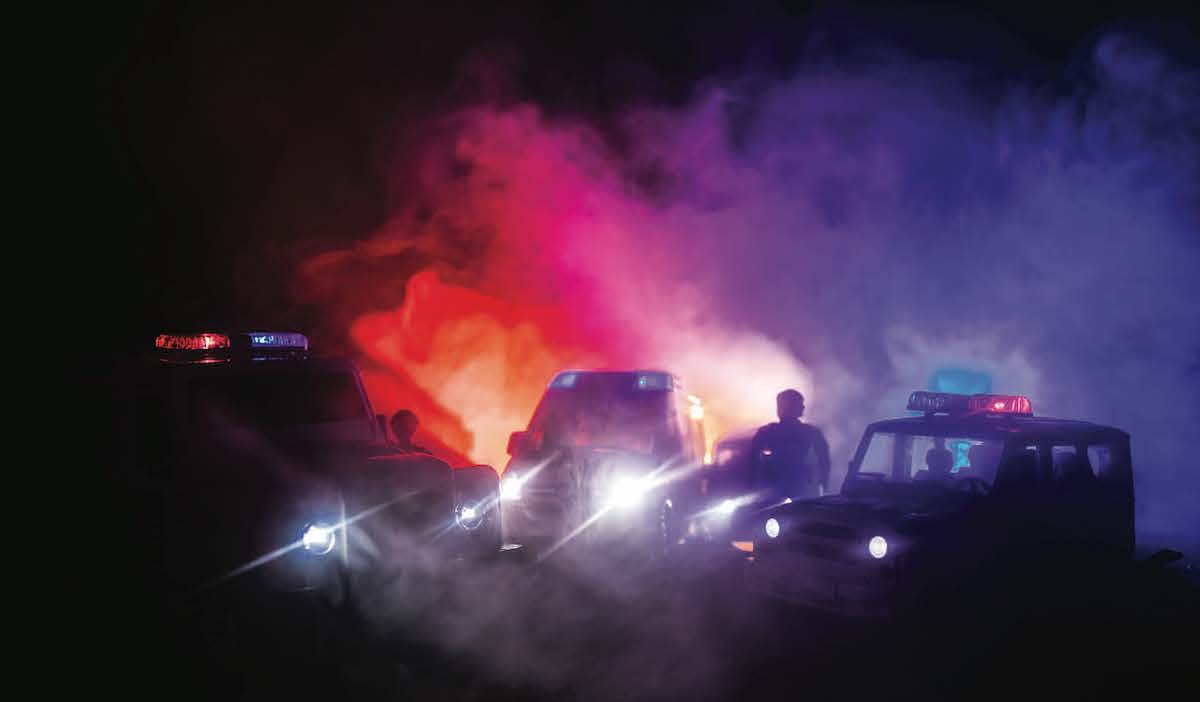Chaplains minister to first responders, entire community
National Emergency Services Week, held the third week of May each year, is a time to honor first responders, those dedicated to serving their communities.
It’s also a time to remember those who serve the men and women who serve — EMS chaplains.
EMS chaplains are on call whenever there is need — to help first responders to cope with the challenges of the job and to support the greater community with care and compassion, to stand in witness to God’s love.
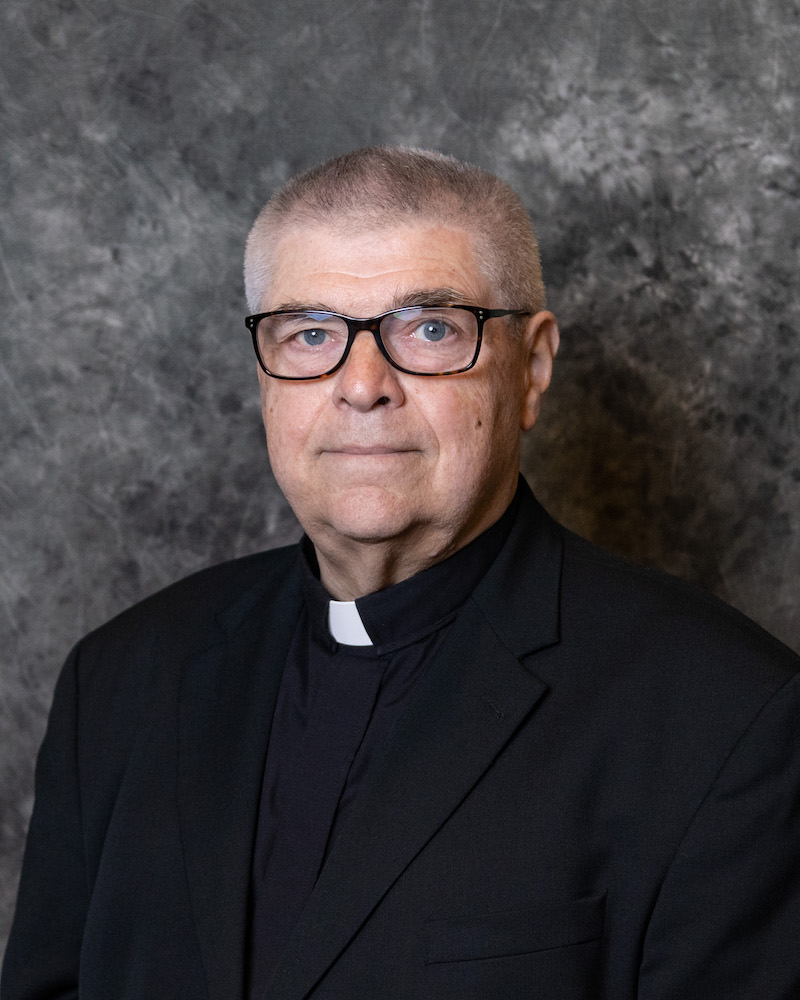
“Whether they’re Catholic or not is not important,” said Father Stephen McNally, pastor of Church of the Transfiguration, Fincastle, and chaplain of Botetourt County Fire and EMS. “At that point — wearing that hat — it’s about letting them know there are people who care about them.”
‘Where is God?’
As pastor of the only Catholic Church in a large county, Father McNally is well-known in his community. Each year, he said, he’s invited to the Lenten lunches at the Methodist Church.
“The joke is that I pack the place because people want to hear the Catholic perspective. There’s the Church of God, the Presbyterians, and then there’s Father McNally,” he said, laughing.
His unique role allows him not only to provide pastoral care to first responders, victims and their families, but also to act as a bridge between faiths, as a unifying presence in his community.
One emergency call, he said, brought him to the home of a fellow clergy member whose wife had suddenly passed away.
“I walked in, and I knew him,” Father McNally said. “I was able to be there with him, and — at his request — I was able to lead a prayer service when his two kids arrived.
It was humbling, to be able to be there for his wife in the final moment of commending her soul to God.” It was humbling, too, he said, to have someone of another faith call upon him for solace and support.
“Everyone with a mind will say at one time or another, ‘Where is God in the midst of this Ukraine war? Where is God in the midst of another gun homicide in Roanoke?’” he said. “The point is, God never abandons us. He’s never away from us. The question is, how do we deal with each other?”
We share much more in common than what divides us, he said. We can treat one another with compassion in times of trial.
Inspired by his godfather, a New York City police lieutenant, Father McNally originally considered a career in law enforcement. He earned a degree in criminal justice before he went to the seminary, and, as a pastor, he’s made it a part of his ministry to support first responders.
He’s served as chaplain at the U.S. Embassy in Bonn, Germany, and as chaplain for the police and sheriff’s office of Bedford County.
He’s been there, he said, at the homes of strangers and of parishioners alike, in their darkest hours.
In 2006, he was out on an errand, he said, when he received a phone call from a man representing the International Conference of Police Chaplains, asking him how far he was from Blacksburg.
“And then he told me about the mass shooting at Virginia Tech,” he said.
Father McNally went at once to keep vigil with parents who had gathered in a tent, waiting for the victims to be identified.
“I waited with them. I prayed with them. There was water available, but there were no answers.”
“You have to be OK with people’s tears, including your own,” he said. “I used to hate that about myself. I felt weak and foolish in front of people. It was a rabbi who told me in my earliest days, ‘You think that’s your worst enemy right now, but let me tell you, if you are ordained as a priest, you will find it’s your greatest asset.’ He was spot on.”
Going forth
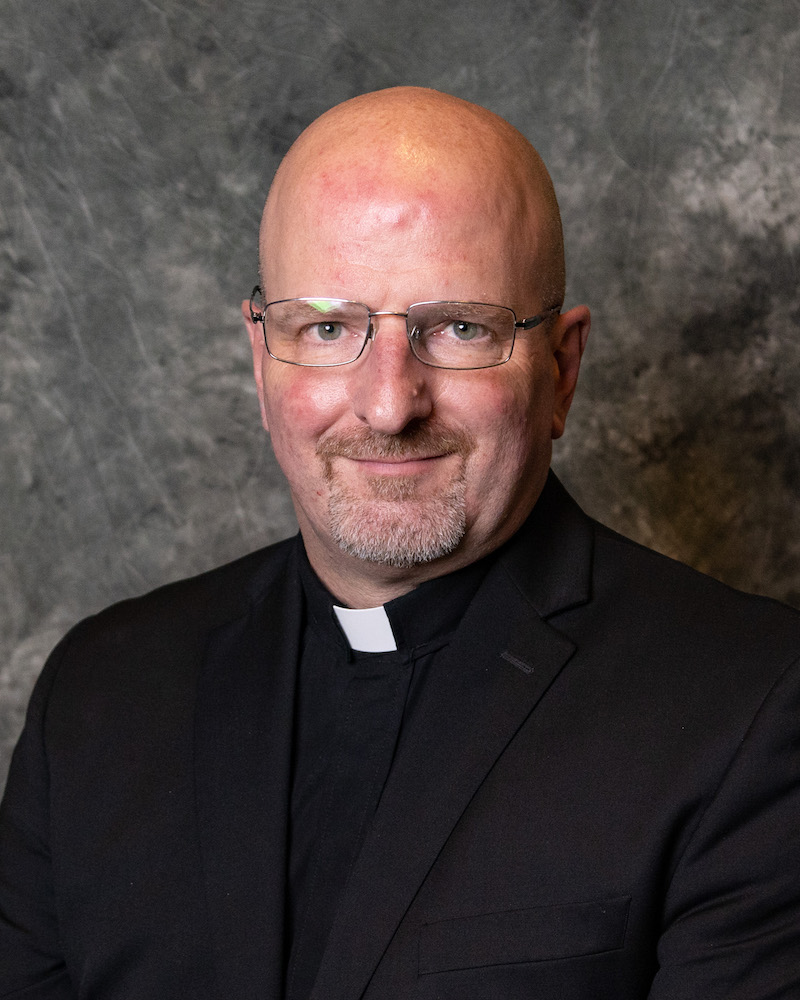
Father Chris Hess, pastor of St. Anne, Bristol; St. Bernard, Gate City; and St. Patrick, Dungannon, has a combined 17 years of experience with EMS. Beginning in 1993 with the Kempsville Volunteer Rescue Squad in Virginia Beach, he went on to serve as a full-time firefighter in Poquoson before entering the seminary in 2006.
Ordained in 2012, Father Hess was assigned to Sacred Heart in Prince George County the following year, where he served as a volunteer firefighter with Disputanta Company 2 and as Prince George County Fire and EMS chaplain.
He was inspired to continue serving, Father Hess said, after he met a group of combat veterans at a mental health facility who suffered from PTSD-related issues.
“Every one of them told me that their biggest frustration about being in a facility like that was having to speak to a therapist who had never been in combat,” he said.
“I’ve never been in combat. I can’t relate to their experience. But when it comes to fire and EMS, that is something that I know and that I can relate to,” Father Hess said.
He has seen changes in the field over the years, he said. Today, there is a greater emphasis on being proactive, on encouraging first responders to talk about their experiences and on peer support.
“Some people might wonder, ‘Why are you doing this?’” he said. “’You are a pastor, why are you out riding with the fire department?’”
The answer, he said, is that being pastor means more than pastoring a single church, but rather an entire community.
“I saw parts of Prince George County that I never would have seen if it weren’t for the work that I did with the fire department. I was in people’s homes, in some of the poorest parts of the county,” he said.
Sitting in his office, he said, he heard of how the opioid crisis was affecting local families. Working with the fire department, he saw the devastation it wreaked firsthand.
His medical experience has also allowed him a greater understanding of those who seek his counsel in times of sickness.
“It’s strengthened my faith. I’m definitely stronger as a pastor due to the things I’ve experienced with EMS. It’s been a privilege to serve,” he said.
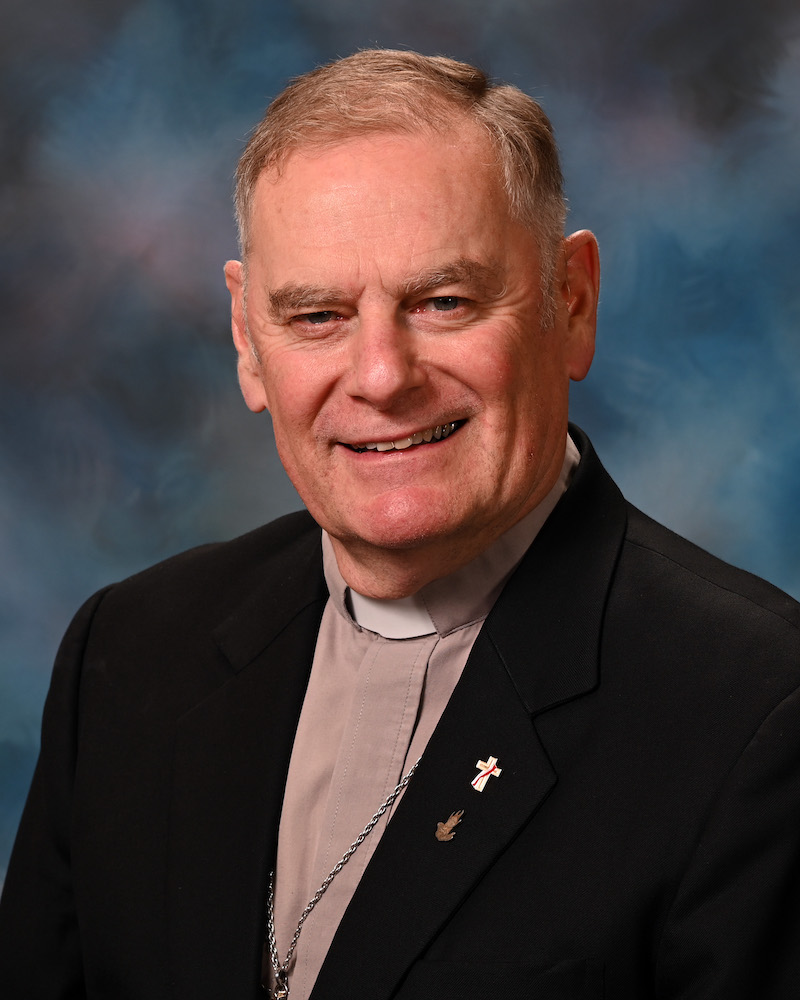
A time to console
Deacon Robert Straub of Sacred Heart, Prince George County; St. John Nepomucene, Dinwiddie; and St. James the Greater, Hopewell, is a chaplain for Prince George Fire and EMS.
He started two years ago, he said, when his pastor at Sacred Heart, Father Hess, and Father David Kirk, pastor at Fort Lee — where Deacon Straub also has faculties with the Archdiocese of Military Services — encouraged him to get involved.
His 20 years of experience in the Army, he said, also inspired him to serve.
“In the Army, I had several instances where I’ve had to be a consoler for people involved in various accidents,” he said. “That’s been my background. The rest is on-the-job training.”
There is no real guidebook, he said; each situation is unique. It’s a matter of allowing oneself to be led, of learning to be what those in mourning need. Even if the death has been expected, he said, when it occurs, the family is beset by a sense of loss and in need of consolation.
And, if the death is unexpected, all the more so.
“I have been called out six times in my two years,” he said. “And of those six sudden deaths, two were suicides.”
“The suicides are hard,” he said. “Everyone is in shock. That’s when you’re needed most. The first thing I do is to find out who’s in charge, to find out what’s happening, before I proceed. Then I go to the family, talk to them, see where they are at, see what we can do to manage their grief.”
“We don’t proselytize, we don’t ask if they’re Catholic,” he said. “At that moment, it doesn’t matter. All that matters is that they know you are there. That they are not alone.”
‘Living Gospel message’
In 2019, Father Daniel Molochko was serving his first weekend as a priest at St. Joseph, Hampton, when a man approached him before Mass and asked him which clergy member owned the car out front with a paramedic sticker.
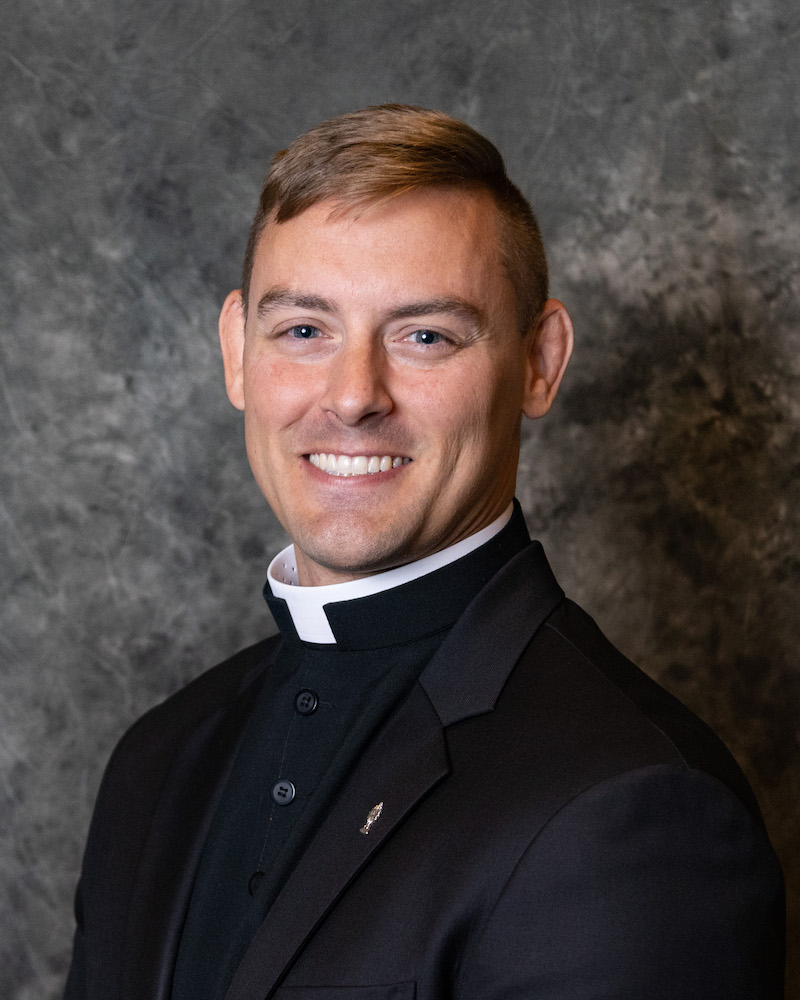
“I told him it was me,” Father Molochko said.
He explained that he had previously worked as a paramedic with the rescue squads of Virginia Beach, he said, and learned that the man was a battalion chief with the Hampton Fire Department.
“We got to talking, and we realized we had been to paramedic school together 10 years prior,” he said.
During their conversation, the battalion chief asked him if he would consider serving as chaplain.
“So that just serendipitously manifested itself,” Father Molochko said. “I’ve been riding with them for two years, working with their men and women whenever there’s a critical call.”
Today, Father Molochko is parochial vicar of the cluster parishes of Chesapeake and Portsmouth, chaplain of the Hampton Fire Department and chaplain of the volunteer rescue squads of Virginia Beach.
In Virginia Beach, he also serves as a paramedic. In working side by side with first responders, he hopes that they will feel more comfortable in a calling upon him — as someone who understands their experiences — if ever they have need.
He is there to provide spiritual support, he said, however he is able.
“That has taken the form of impromptu catechism and biblical history classes at one of the whiteboards in the kitchen in the fire house, all the way to anointing patients on the way to the hospital when they tell me they are Catholic,” he said.
His experience and his ministry, he said, has bolstered his own faith.
“I don’t think anyone can honestly study the intricacies of the human body and the way it’s arranged, and the way it works so perfectly, without recognizing the masterwork of some form of Creator. Just in studying medicine alone, it reveals something about the nature of God,” he said.
EMS personnel and their chaplains are living out the Gospel, Father Molochko said, in performing corporal works of mercy — providing relief to the sick and comfort to those who mourn.
“We are providing care and, in a way, dignity, for those people who are possibly having the worst day of their lives,” he said. “It’s living a Gospel message in a secular world.”

